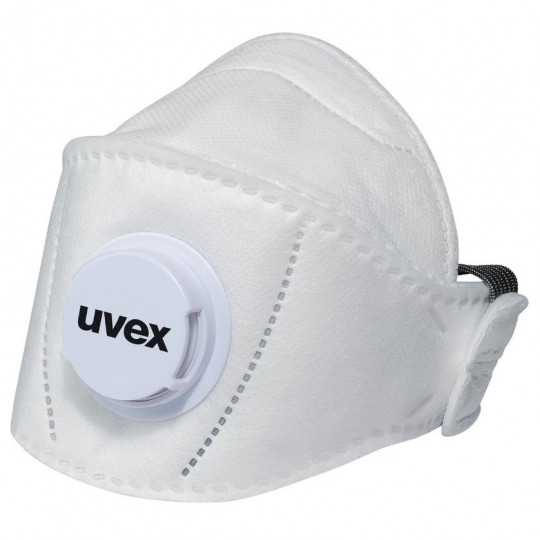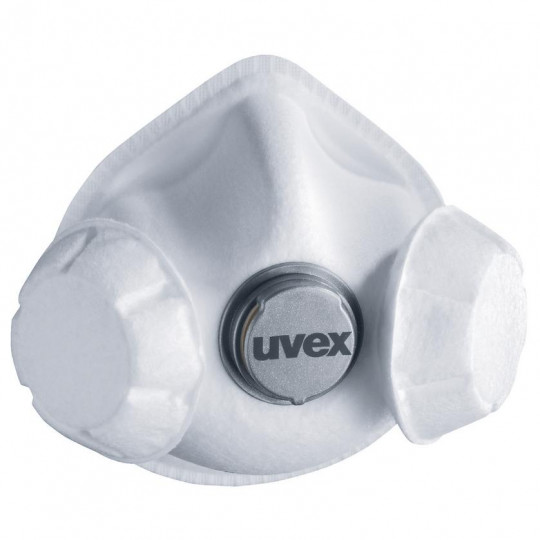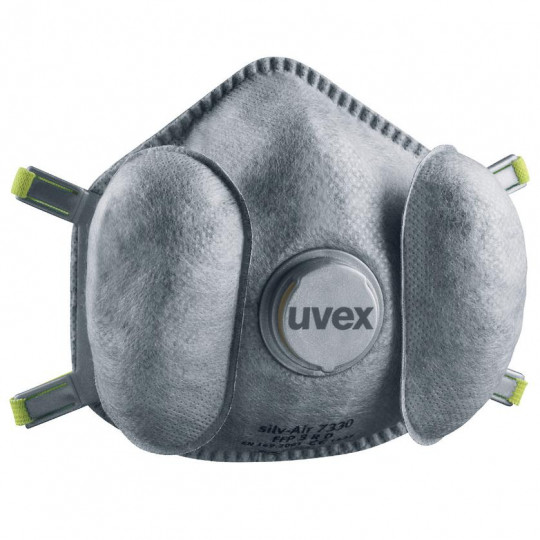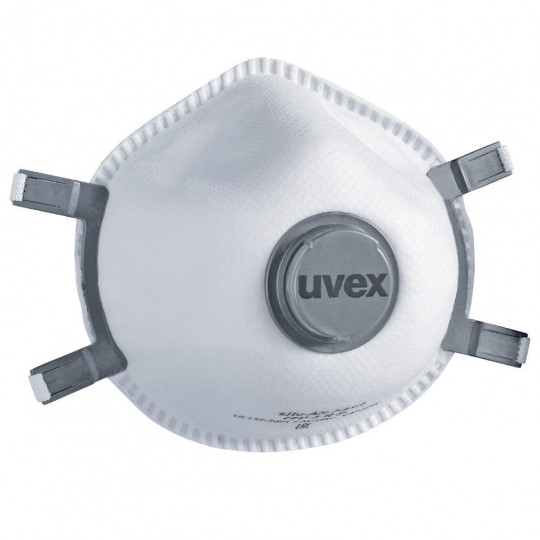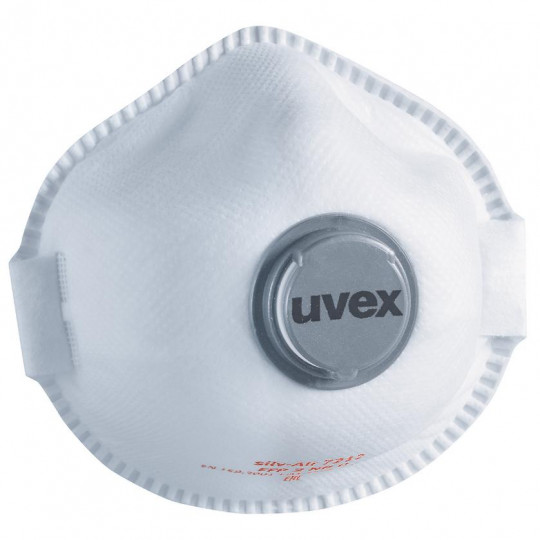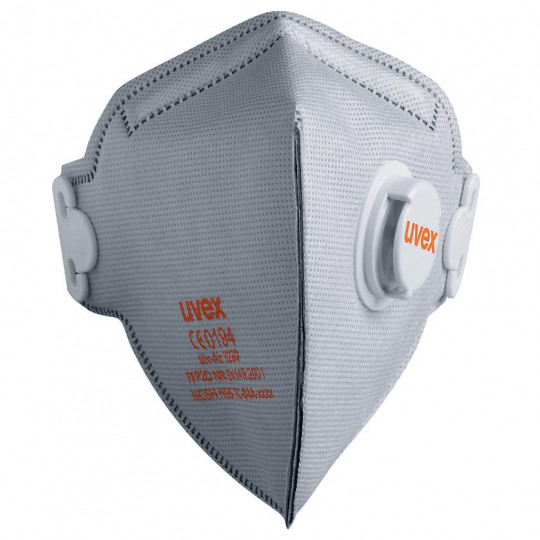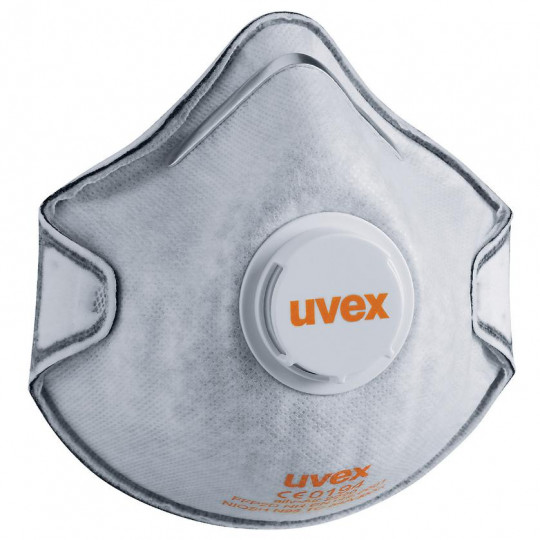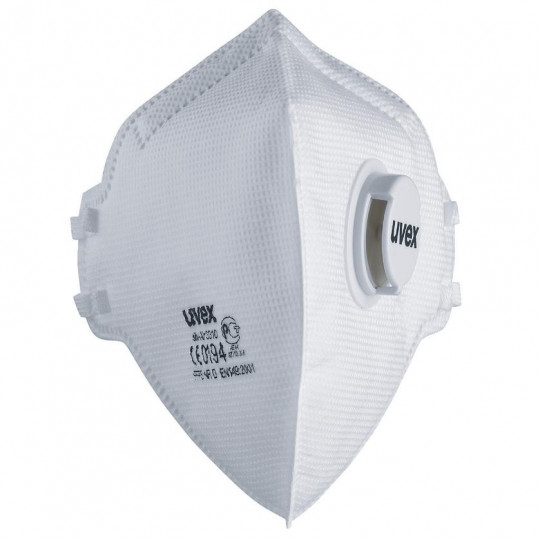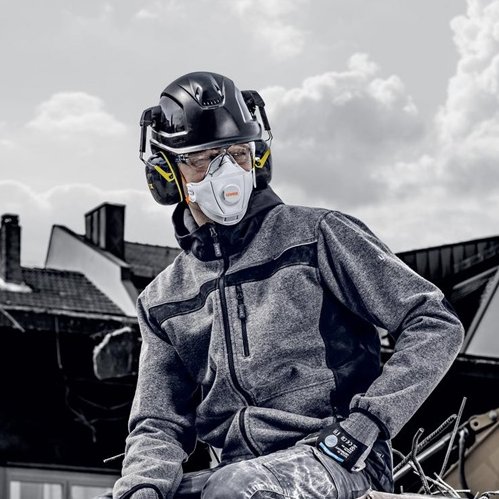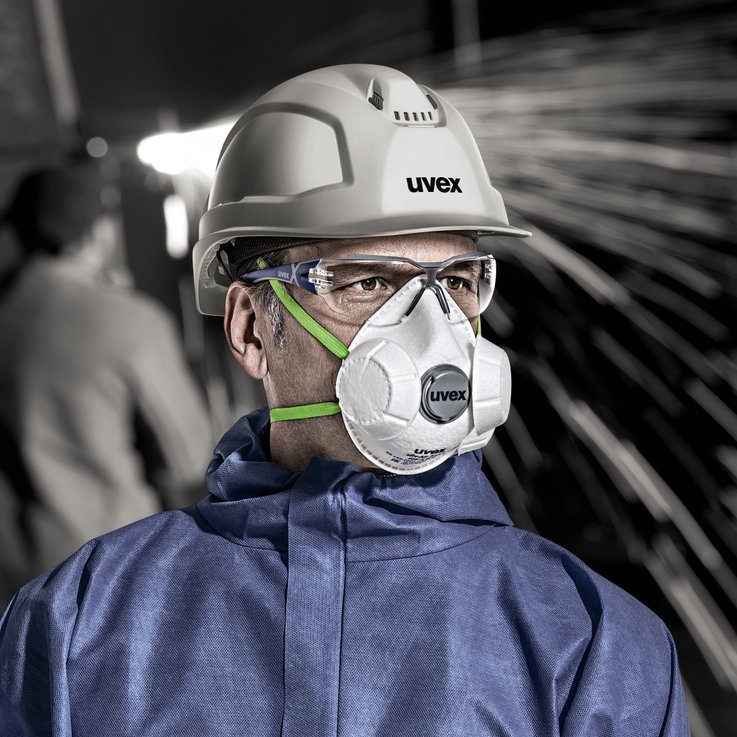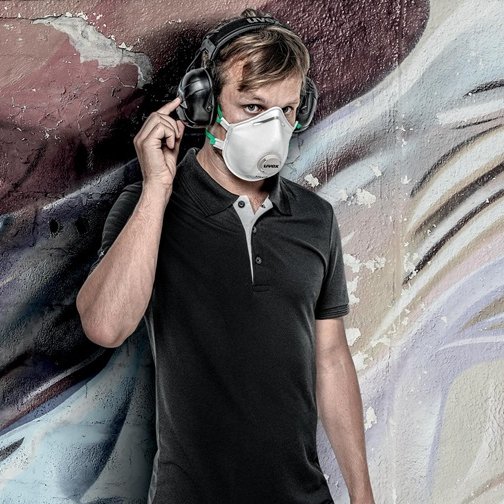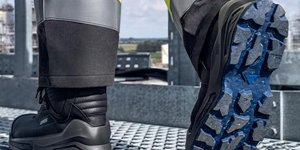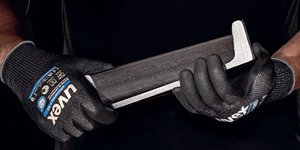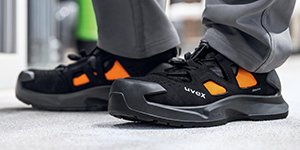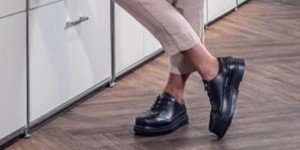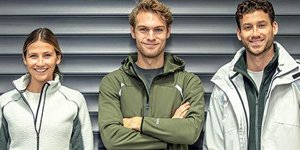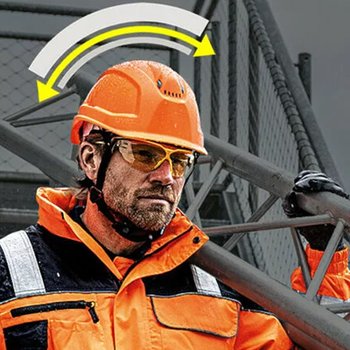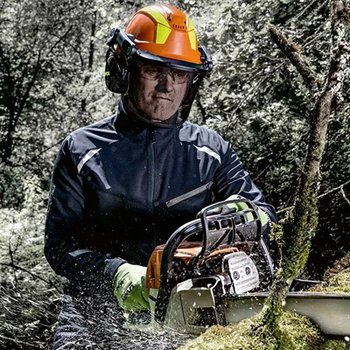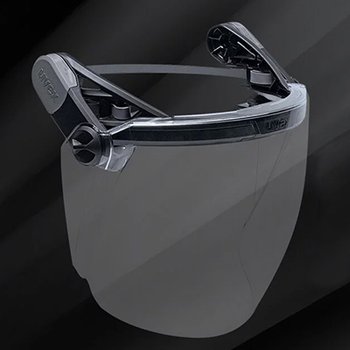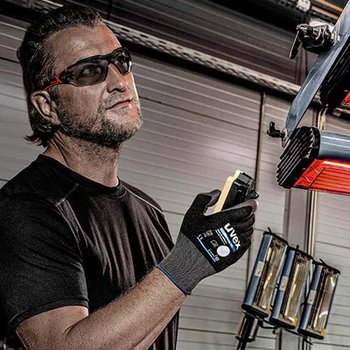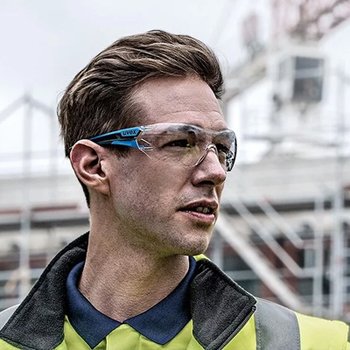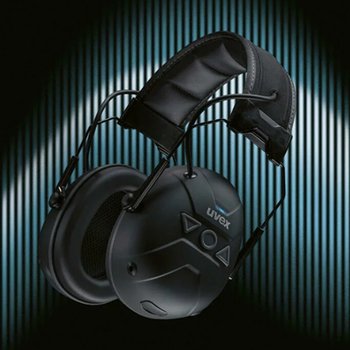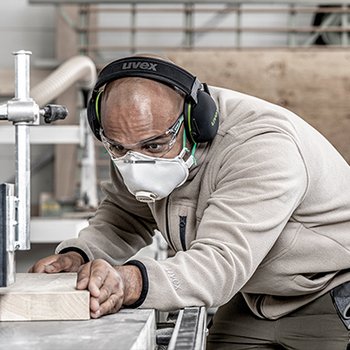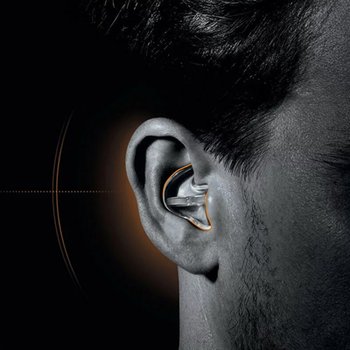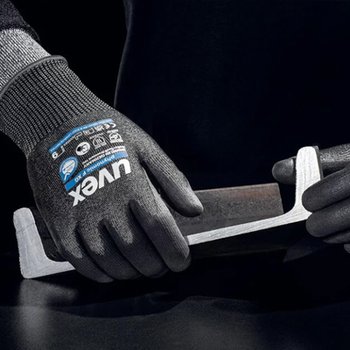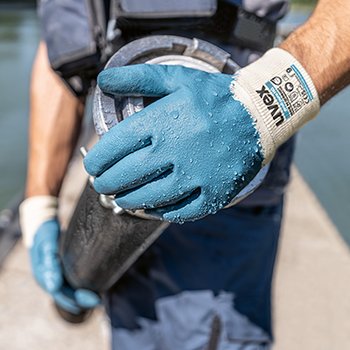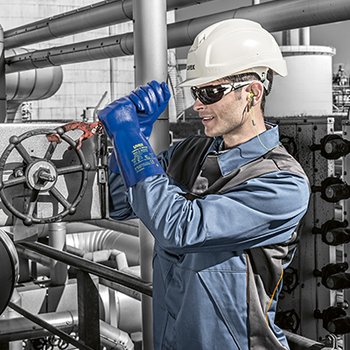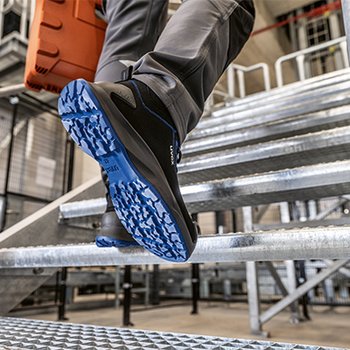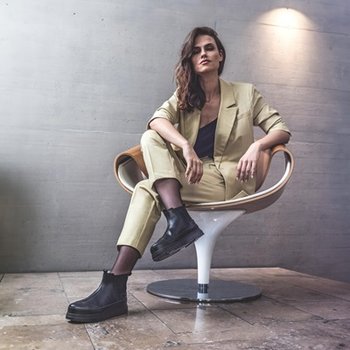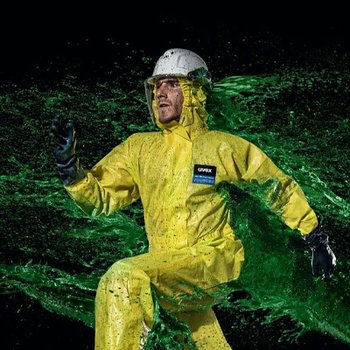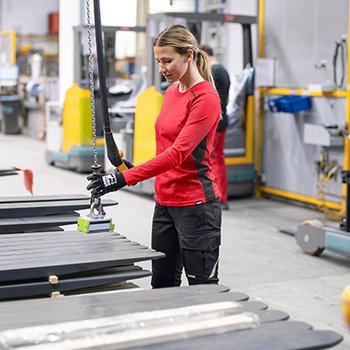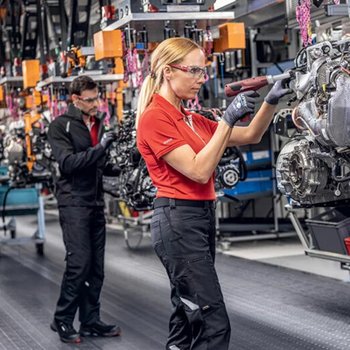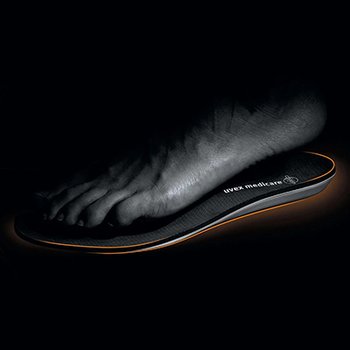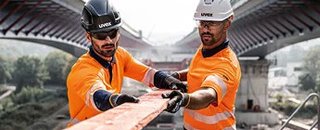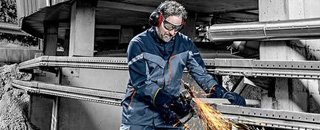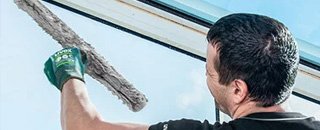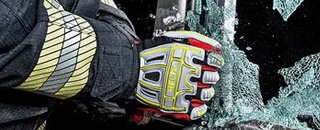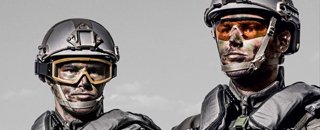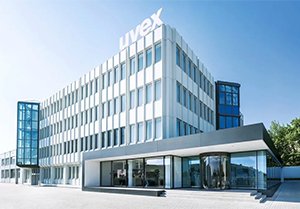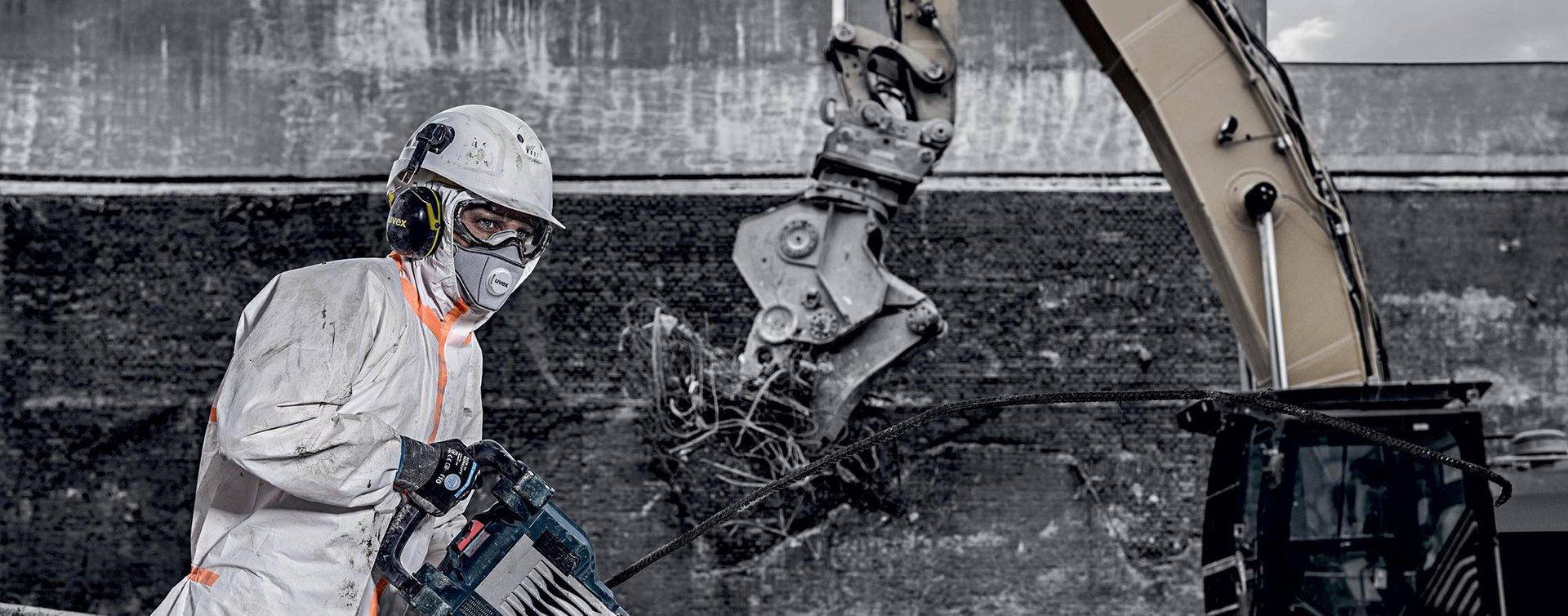
Respiratory protection from uvex
FILTER
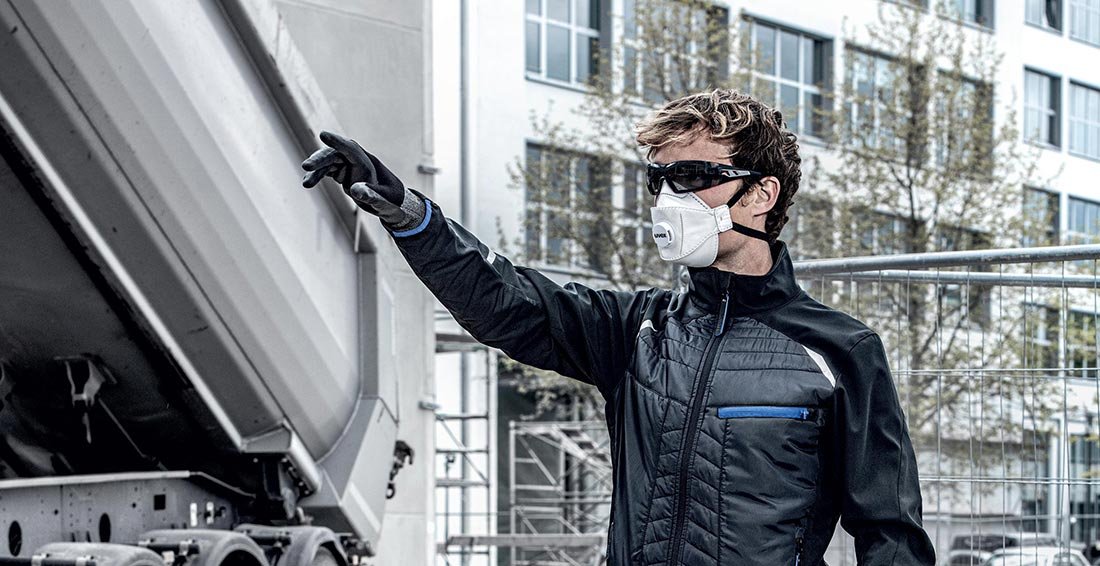
Respirators from uvex
Inhaling harmful substances can cause damage to your respiratory system and your body as a whole. Often, these usually irreversible consequences are detected much later on, which is why protection against respiratory toxins and hazardous substances is particularly important in the workplace.
What is respiratory protection and when are respirators used?
Respiratory protection refers to items of personal protective equipment (PPE) that are used to protect against respiratory toxins and hazardous substances and that are particularly relevant to occupational safety. In respiratory protection, there is a distinction between filtering and insulating devices: If the pollutant load is known and a minimum of 17 vol% oxygen is present in the ambient air, filtering devices, i.e. respirators are sufficient. These devices filter the pollutants from the ambient air before it is inhaled. In the case of higher loads and lower oxygen levels in the air, insulating devices such as self-contained breathing apparatus or airline breathing apparatus should be used. These devices supply the wearer with extra oxygen and insulate them from the ambient air.
What types of respirators are available?
As part of your personal protective equipment (PPE), uvex respirators can reliably filter particles and droplets from the air and comply with the European standard DIN EN 149. uvex's particle-filtering protective masks are divided into three basic protection classes based on their differences in filtering capacity:
- FFP1 masks filters out at least 80 percent of particles from the ambient air.
- FFP2 masks can filter out 94 Prozent of particles.
- FFP3 masks have a filtering potential of 99 Prozent.
The higher the filtering capacity required, the more filter layers that are used in the production of the mask or the higher the grammage that is used in the filter layers. The different filter layers determine the shape retention, tear resistance, natural filtration and look and feel of the mask. As protective masks create increased breathing resistance over time, uvex has developed special high-performance masks These masks keep breathing resistance as low as possible and improve the climate under the mask.
uvex protective masks also vary in shape: The preformed or cup-style masks are particularly sturdy and can also be worn for long periods of time. Flat-fold masks , on the other hand, are easy to store and are suitable for travel. They have found their way into the daily lives of many people, particularly during the coronavirus pandemic. Both types of respirator are available from uvex with or without an exhalation valve.
Our respirators are particle-filtering half-masks or fine dust masks with a filter system designed to protect the wearer against solid or liquid particles and dust when placed over the mouth and nose. Full masks protect the whole face and are recommended for protection against harmful substances that also attack the skin.
Which respirators provide protection against which hazardous substances?
uvex respirators provide protection against aerosols, fine dust, solid particles in smoke and liquid particles that act as a transmission medium for viruses and bacteria. Gases and vapours are not covered by uvex masks. Some masks feature an exhalation valve, which releases used air into the surrounding environment and closes again during inhalation. This prevents heat and moisture from accumulating underneath the mask and reduces breathing resistance. uvex respirators in all three protection classes (FFP1, FFP2 and FFP3) comply with the European standard EN 149:2001+A1:2009.
- uvex FFP1 masks: Purchase an FFP1 mask for tasks involving non-toxic and non-fibrogenic dusts. In most cases, this type of harmful substance causes a strong smell and temporary irritation of the respiratory tract. These masks protect against a pollution load of up to four times the prescribed occupational exposure limit. uvex FFP1 masks are used in the agricultural and food industries.
- uvex FFP2 masks: Purchase an FFP2 mask for protection against dust, smoke, aerosols and fibrogenic particles (liquid and solid), or for tasks in the medical field involving working with people. These fibrogenic particles can cause long-term damage to the lungs and temporary irritation of the respiratory system. uvex FFP2 masks can withstand a maximum load of ten times the occupational exposure limit. FFP2 masks are used in the metalworking industry and in mining.
- uvex FFP3 masks: Purchase an FFP3 mask if you are exposed to toxic and harmful aerosols, dust and smoke. uvex FFP3 masks are also essential for protection against carcinogenic or radioactive substances, bacteria, viruses and fungal spores. But please note: Our masks do not protect against radioactivity in general, only against solid radioactive particles. These masks also protect you from loads that are 30 times the applicable occupational exposure limit. One application example is in the chemical industry.
On this page you can find out more about the importance of FFP protection classes. For a detailed list of some of the key harmful substances that uvex masks protect against, see our Respiratory protection guide. We also encourage you to check out our FAQs on respirators.
What should I consider when purchasing respirators?
1. Determine your needs
Have experts carry out a risk assessment of your work environment and its pollutants before purchasing protective masks. This clarifies the likeliness of a health hazard, which hazards are present, how significant they are and how long they take to develop. You should always consult experts and determine the legal requirements in your professional field before purchasing protective masks. Assessing the hazard situation will also establish whether further PPE items such as safety gloves or eye protection are required.
2. Find the right respirator for you
As mentioned above, the types of hazardous substances and level of exposure determine which level of protection is appropriate. If you have any questions, please do not hesitate to contact our expert advisors, who will be on hand to assist you. It is important that you select the type of uvex mask carefully.
3. Make sure that you know how to put on a respirator correctly
uvex respirators are only effective if they are applied to the face correctly and securely. This requires extra training to be organised by the employer. Read the instructions for use and the packaging information to find out how to put on the mask correctly, as it is crucial that the mask fits on the face securely in order for it to provide effective protection. Place the mask on your chin and then place it over your mouth and nose. Adjust the headbands individually and press the nose bridge down firmly. Always make sure that the mask is secure, but do not overtighten the straps. Please also check out our How-to videos on putting on uvex protective masks from our YouTube channel.
If you have a beard and/or sideburns or have deep scars, you must work with the relevant safety officer to find a custom solution to ensure that your respirator fits you securely. Our wide range means that we have options for a variety of face shapes. If you wear glasses, we recommend a mask with a valve to prevent the lenses from fogging up.
4. Wear your mask for the correct amount of time
Disposable respirators are designed to be worn for a single working day lasting up to eight hours. If you are working with toxic substances or working with viruses, bacteria or carcinogenic substances, change the respirator each time you take it off. These non-reusable masks are marked with "NR" for "not reusable", and the reusable masks are marked with "R" for "reusable".
What is it that makes uvex respirators so special?
Due to the large number of filter layers, breathing resistance builds up in respirators, which can make breathing difficult. The higher the demands placed on the filter performance of the dust mask, the higher the breathing resistance. To address this situation and increase wearer comfort, uvex has developed high-performance masks that enable low breathing resistance and improved air conditions when wearing the mask. An additional special feature of uvex masks is an inhalation valve and a considerably enlarged filter surface. This type of mask is primarily concerned with self-protection. We offer masks both with or without a valve.
uvex — your contact for respirators
If you would like to buy protective masks, check out our extensive range. You can also get in touch with our expert advisors to find the perfect uvex mask for your profession. Contact us via our contact form, by phone (+49 (0) 800 66 44 893) or by email (safety@uvex.de). We will be happy to help.









